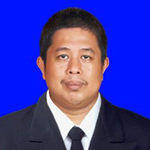Akuatikisle: Jurnal Akuakultur, Pesisir dan Pulau-Pulau Kecil
Full Length Article
Social capitals as village building potential (Case study: Matamppa Walie Village Community in Bone Regency)
Highlights
Generate NLP AI by Wizdam ID.
Abstract
Kinship among the people of Mattampa Walie village in Bone can be created because values, norms and trust between fellow communities are still upheld. The concept of social capital has three important elements, namely trust, values and networks, which can place special emphasis on the causal relationship between social capital and community welfare. The research uses a qualitative approach with a case study type. Data collection was carried out using observation, interview and documentation techniques. Data analysis techniques are carried out by reducing data, presenting data and drawing conclusions. The research results show that strong social capital, supported by trust, solid social networks, and the values of mutual cooperation, is an important foundation in strengthening solidarity and togetherness in the Mattampa Walie Village community. It is hoped that this will be an impetus for better development, as well as increasing the welfare and resilience of families in preparing strong human resources.
Keywords
Introduction
Section snippets
Material and Methods
Materials and methods from the full-text PDF of this article cannot be displayed.
Results
Results from the full-text PDF of this article cannot be displayed.
Discussion
Discussion from the full-text PDF of this article cannot be displayed.
Conclusions
Conclusions from the full-text PDF of this article cannot be displayed.
Acknowledgment
Acknowledgment from the full-text PDF of this article cannot be displayed.
Competing interest
The authors declare that they have no known competing financial interests or personal relationships that could have appeared to influence the work reported in this paper.
Conflict of interest
The authors declare that the research was conducted in the absence of any commercial or financial relationships that could be construed as a potential conflict of interest.
Ethical approval acknowledgements
No ethical approval required for this article. All procedures followed were in accordance with the ethical standards of the responsible committee on human experimentation (institutional and national) and with the Helsinki Declaration of 1975, as revised in 2008 (5)
Supplementary files
Data sharing not applicable to this article as no datasets were generated or analysed during the current study, and/or contains supplementary material, which is available to authorized users.
References (23)
Astuti, S. J. W. 2010. Membangun Kembali Social Capital Dalam Rangka Reformasi Administrasi di Indonesia. Governance: Jurnal Kebijakan dan Manajemen Publik, 1(2), 101-112.
Azis, Risfaisal, dan Rosa. 2022. Modal Sosial Masyarakat Pesisir (Studi Kesejahteraan Sosial Petani Rumput Laut di Kabupaten Jeneponto). Aksiologi, 3(1):24-36
Budi, Zulfachri., Ahmad, Puad, Mat, Som. 2022. The Development of the Concept of Social Capital. Resiprokal : Jurnal Riset Sosiologi Progresif Aktual, 3(2):210-229
Busthanul, N., Lanuhu, N., Heliawaty, H., Syafiuddin, M., & Sari, A. K. 2022. The role and elements of social capital of potato farmers in Pattapang Village, Tinggimoncong District, Gowa Regency. Jurnal Agercolere, 4(2), 60-67.
Dadang, Sundawa. 2023. The Shift of Gotong Royong Value of Karo Community in the Area around Mount Sinabung. Indonesian Journal of Social Science Research
Dasanayaka, U., & Matsuda, Y. 2022. Role of social capital in local knowledge evolution and transfer in a network of rural communities coping with landslide disasters in Sri Lanka. International Journal of Disaster Risk Reduction, 67, 102630.
Graham, Brotherton. 2017. Key Concept: Social Capital. 283-286
Hasbullah, Jousairi. 2006. Social Capital (Menuju Keunggulan Budaya Manusia. Indonesia). Jakarta: MR-United Press
Hutauruk, J. M. 1975. Gotong royong: a study of an Indonesian concept and the application of its principles to the Seventh-day Adventist church in Indonesia
Irwansyah, I., Mario, M., & Arisnawawi, A. 2021. Terrorism Habitus Reproduction in Indonesia (Study of Pierre Bordieu's Thought in Potraying Terror Behavior in Indonesia). Jurnal Ilmu Sosial Mamangan, 10(2), 130-138.
Jennifer, L., Miller. 2022. What is social capital?. 11-32.
Kurnia, H., Khasanah, I. L., Kurniasih, A., Lamabawa, J., Darto, Y., Wawuan, F. Z., ... & Santoso, M. I. B. 2023. Gotong Royong Sebagai Sarana Dalam Mempererat Solidaritas Masyarakat Dusun Kalangan. EJOIN: Jurnal Pengabdian Masyarakat, 1(4), 277-282.
Kurnia, H., Wahyudi, F., Salimah, T. M., Massrul, A., Muflikhah, I., Aeni, S. N., ... & Akmal, M. Z. 2023. Gotong Royong Sebagai Salah Satu Tradisi Masyarakat Dusun Pereng Yang Masih Dilestarikan Hingga Saat Ini. EJOIN: Jurnal Pengabdian Masyarakat, 1(4), 283-288
Madaha, R. 2021. Factors for joining village community networks in Tanzania.
Matilda, Hellman. 2019. Where is "society"?. Nordic studies on alcohol and drugs, 36(4):311-313
Oberoi, R., Halsall, J. P., & Snowden, M. 2022. Social Capital, Social Innovation and Social Enterprise: The Virtuous Circle.
Saifuddin & Arisnawawi. 2023. Strategi Bertahan Hidup Masyarakat Nelayan Melalui Jaringan Sosial di Desa Cikoang, Kabupaten Takalar. Jurnal Sosialisasi: Jurnal Hasil Pemikiran, Penelitian, dan Pengembangan Keilmuan Sosiologi Pendidikan, 10(1), 197-205.
Sanita, Šuriņa., & Kristīne, Mārtinsone. 2020. Conceptualization of social capital in cross-sectional design studies: rapid review of literature. 7:177-186.
Singh, M. K., & Moody, J. 2022. Do social capital and networks facilitate community participation?. International Journal of Sociology and Social Policy, 42(5/6), 385-398
Sylvia, Walby. 2021. Developing the concept of society: Institutional domains, regimes of inequalities and complex systems in a global era:. Current Sociology
Tridakusumah, A. C., Yusuf, A., & Pardian, P. 2023. The role of social networks in the development of rural community-based eco-industry. In IOP Conference Series: Earth and Environmental Science. 1211(1): 012003). IOP Publishing.
Wei, Chu. 2022. Social Capital and Social Networks. 56-67.
Xiaoyan, Zhou. 2022. Social Capital. The International Encyclopedia of Health Communication.
Bibliographic Information
Cite this article as:
-
Submitted
27 January 2024 -
Revised
24 March 2024 -
Accepted
15 April 2024 -
Published
19 April 2024 -
Version of record
20 June 2024 -
Issue date
30 May 2024
-
Academic subject
Sociology;
Copyright
Sangia Advertisement
Copyright © 2024 Muhammad Sabiq, Sakaria, Arisnawawi. Sangia Research Media and Publishing. Production and hosting by Sangia (SRM™).  This work is licensed under a Creative Commons Attribution-ShareAlike 4.0 International License.
This work is licensed under a Creative Commons Attribution-ShareAlike 4.0 International License.
Disclaimer: All claims expressed in this article are solely those of the authors and do not necessarily represent those of their affiliated organizations, or those of the publisher, the editors and the reviewers. Any product that may be evaluated in this article or claim that may be made by its manufacturer is not guaranteed or endorsed by the publisher.
Comments on this article
By submitting a comment you agree to abide by our Terms and Community Guidelines. If you find something abusive or that does not comply with our terms or guidelines please flag it as inappropriate.







